Ableism and Brain Injury
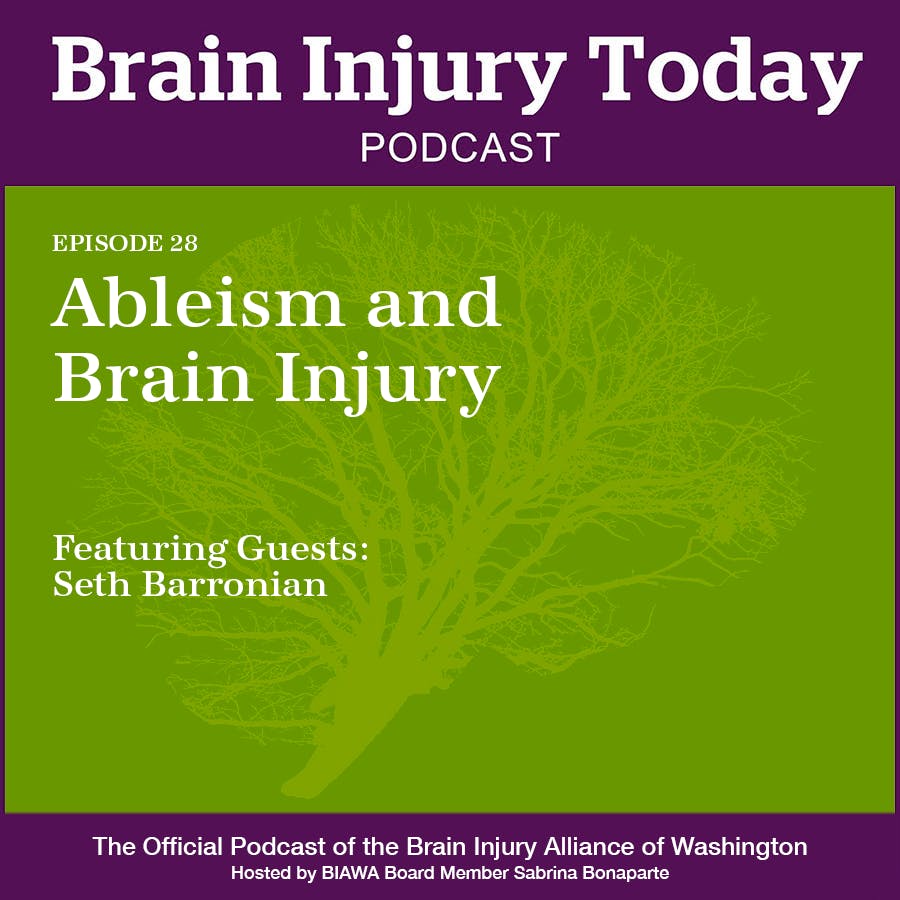
Ableism impacts individuals with physical disabilities as well as those who are neurodiverse. In this episode, we discuss what ableism is and how it impacts those with disabilities, particularly those in the brain injury community. Sabrina speaks with Seth Barronian, a brain injury survivor with both physical disabilities and who is also neurodiverse, and Alan Barronian, his father and caregiver, about their experiences with ableism. Seth discusses how he has experienced ableism both in his personal and professional life, and Alan shares his perspective as a caregiver. They also discuss how to help those with invisible disabilities, and how to be an ally and an advocate for those with all disabilities.
Building Community and Finding Support
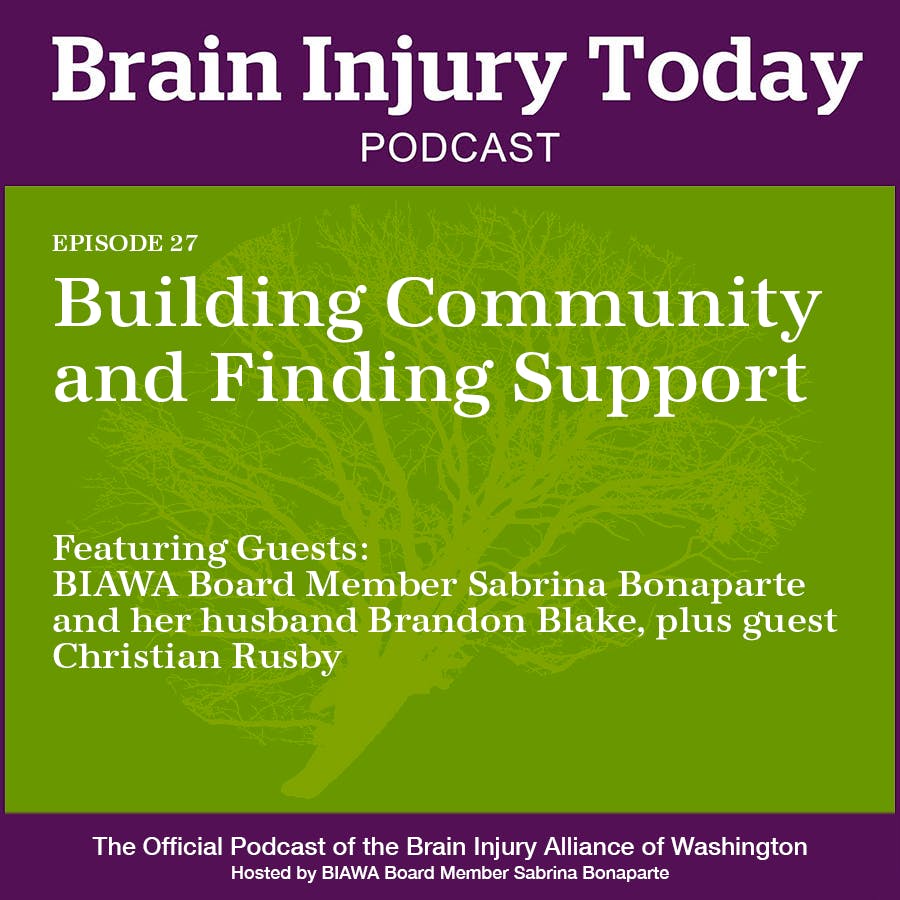
In this episode of the Brain Injury Today Podcast, new host Sabrina Bonaparte explores the importance of finding and building a community of survivors of brain injury. Her husband, Brandon Blake suffered a traumatic brain injury 8 years ago and found a community of people whom he could relate and recover with. One of the people Brandon met in a support group is his friend, Christian Rusby. This episode explores the importance of support groups and community for both survivors of brain injury and their caregivers.
Dr. Monica Vavilala: A Roadmap for Accelerating Progress
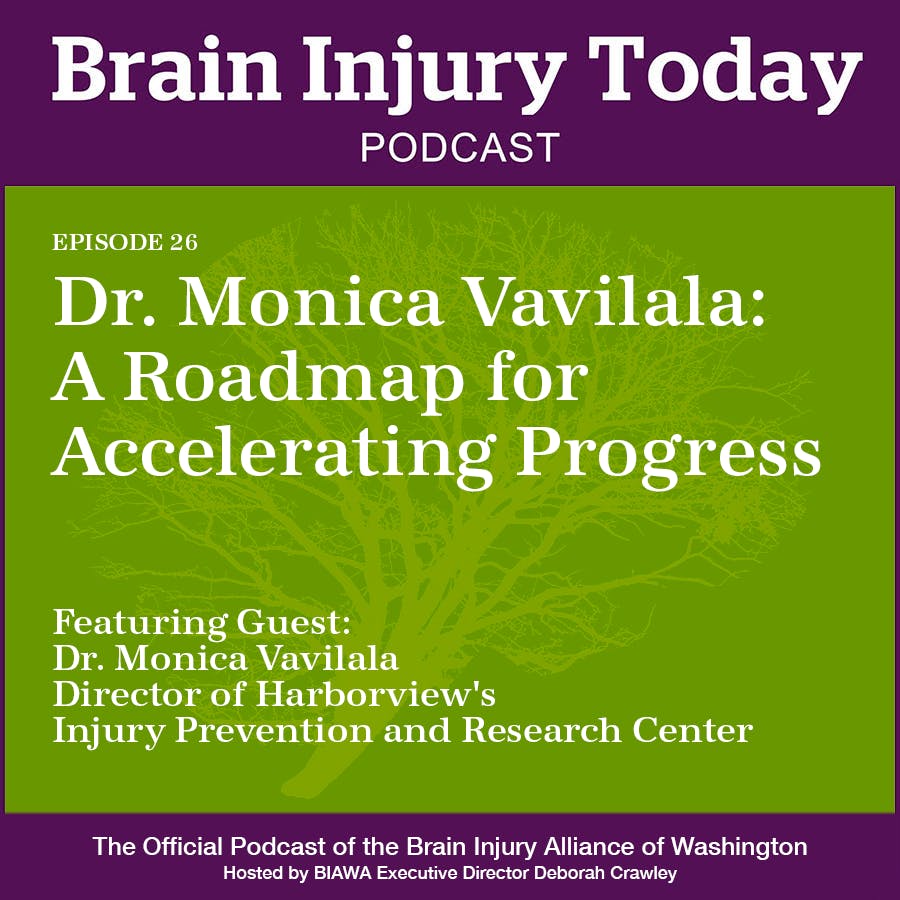
The labels of “mild,” “moderate,” and “severe” to classify traumatic brain injury (TBI) are imprecise and are ineffective. Dr. Monica Vavilala is a board-certified anesthesiologist and director of Harborview’s Injury Prevention and Research Center. Earlier this year Dr. Vavilala served on a task force to help update and personalize traumatic brain injuries to better guide patient care. In this conversation, Dr. Vavilala shares why this update and personalization for traumatic brain injuries is crucial for both doctors and patients.
The Ultimate Guidebook for Brain Injury Survivors, Caregivers and Professionals (Pt. 2)
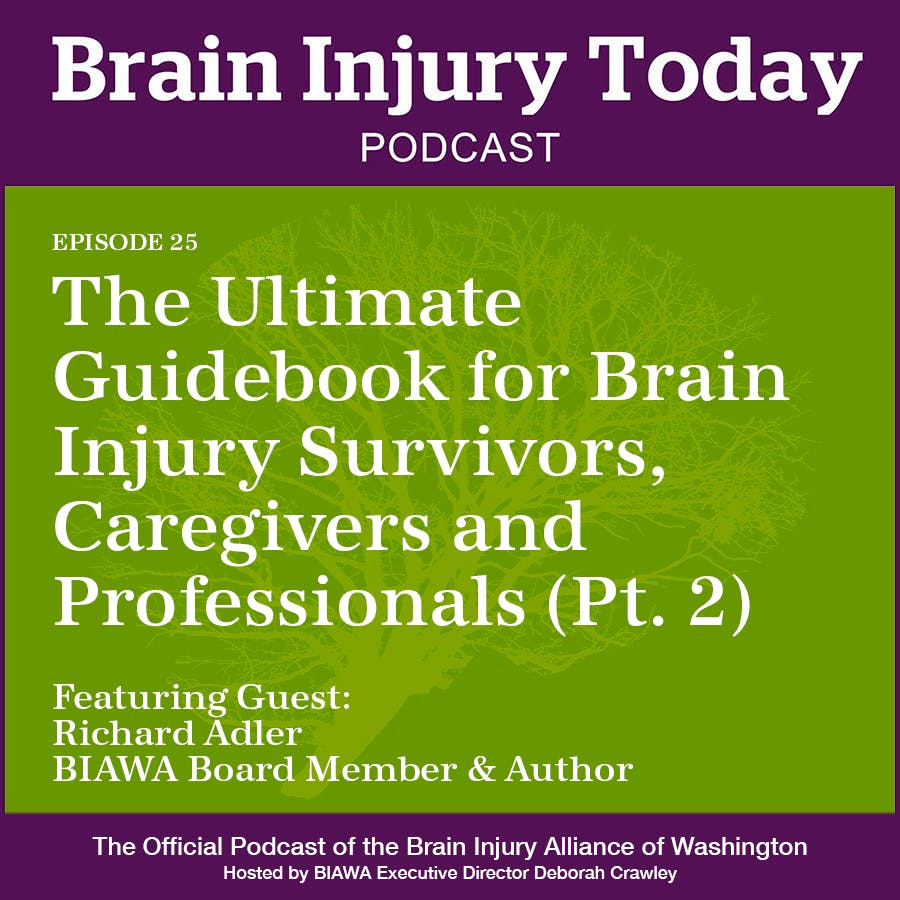
In this episode we continue our discussion about a groundbreaking new book called Understanding Traumatic Brain Injury: A Guide for Survivors and Families by BIAWA Board Member Richard Adler. Deborah and Richard discuss the value of the book with two doctors who contributed to its development: Dr. Samuel Browd and Dr. Gary Stobbe. They discuss how the book helps fill information gaps about traumatic brain injury for their patients and fellow medical professionals.
Reflecting on 2021
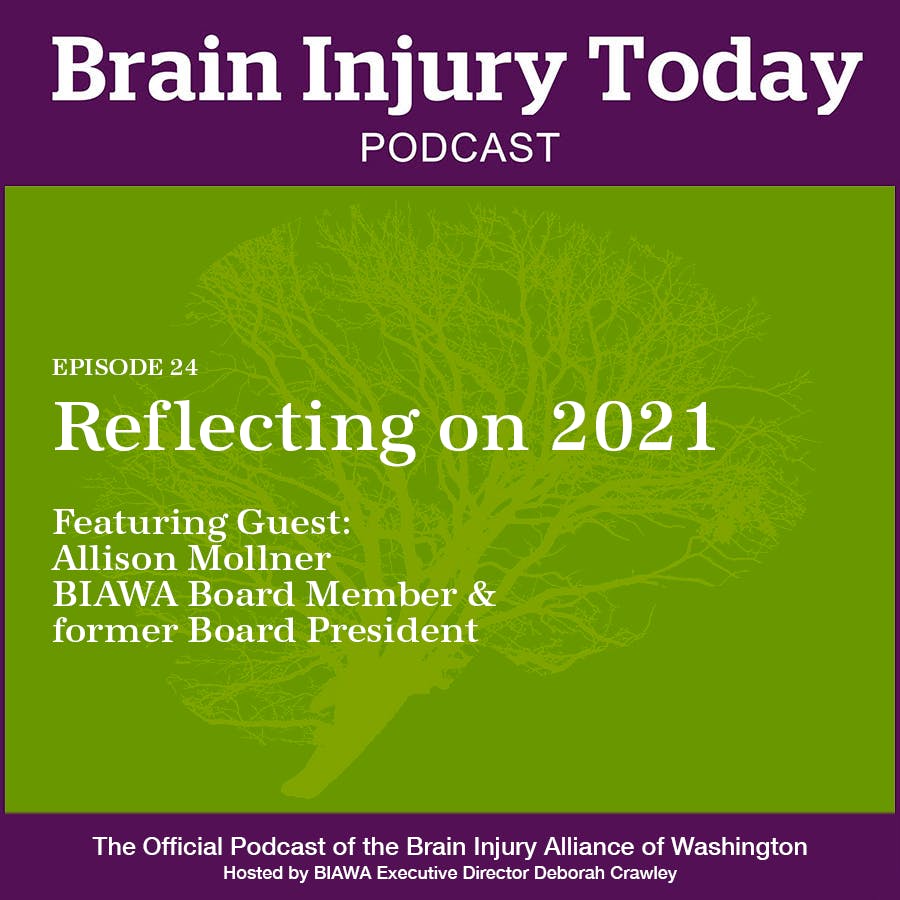
2021 has been another challenging year, but there is plenty of good to reflect on as we head into a new year full of new possibilities. In this episode, Deborah chats with BIAWA Board Member and former Board President Allison Mollner about some of their favorite Brain Injury Today episodes and the power of using personal stories to educate and build community. They also discuss their takeaways from this year that they plan to carry forward into 2022, in hopes that you’ll find a kernel of wisdom to incorporate into your life, whether you’re a survivor, caregiver, professional, family member or friend. Tell us what you’d like to hear about on the podcast in 2022 by reaching out on social media or sending an email with the subject line “Brain Injury Today” to [email protected].
The Ultimate Guidebook for Brain Injury Survivors, Caregivers and Professionals (Pt. 1)
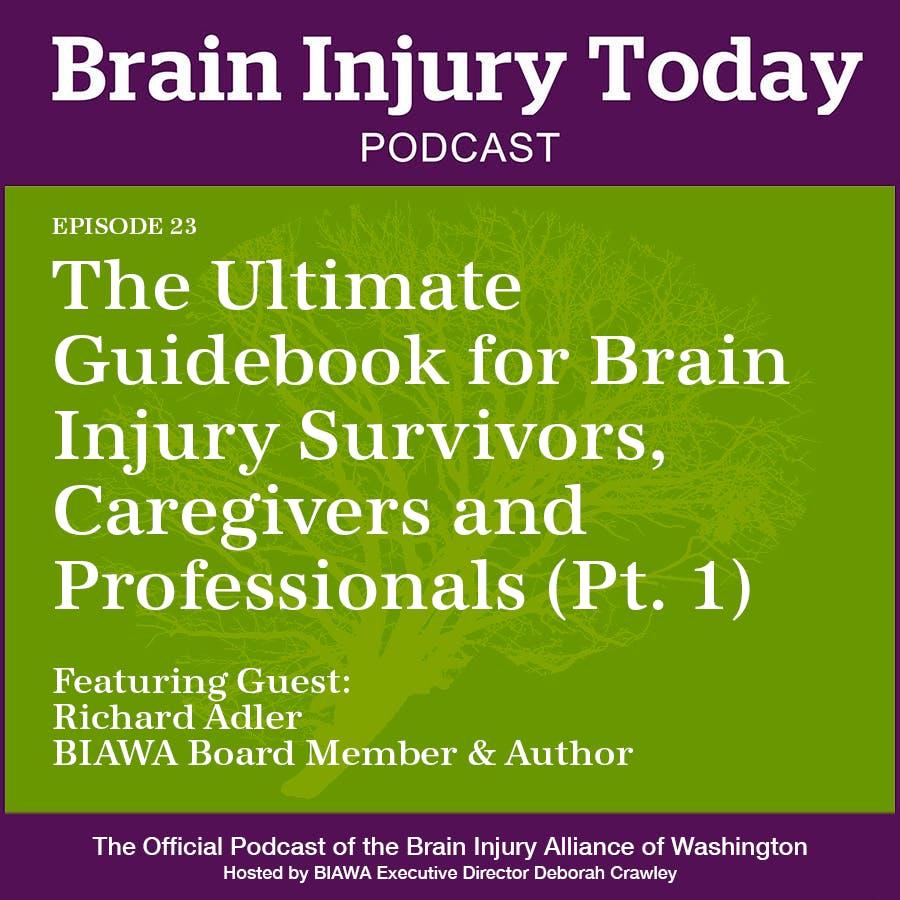
This is the first of a two part episode about a groundbreaking new book called Understanding Traumatic Brain Injury: A Guide for Survivors and Families. BIAWA Board Member Richard Adler, who authored the book, joins Deborah along with Brandon Blake and Sabrina Bonaparte, who contributed their perspectives as a survivor and caregiver, to discuss how it can serve as an invaluable resource for those navigating the difficulties of brain injury. Richard, Brandon and Sabrina discuss how they worked together to create this comprehensive, step-by-step guidebook and their hopes for getting it into the hands of as many people as possible.
Going Back To Work After Brain Injury
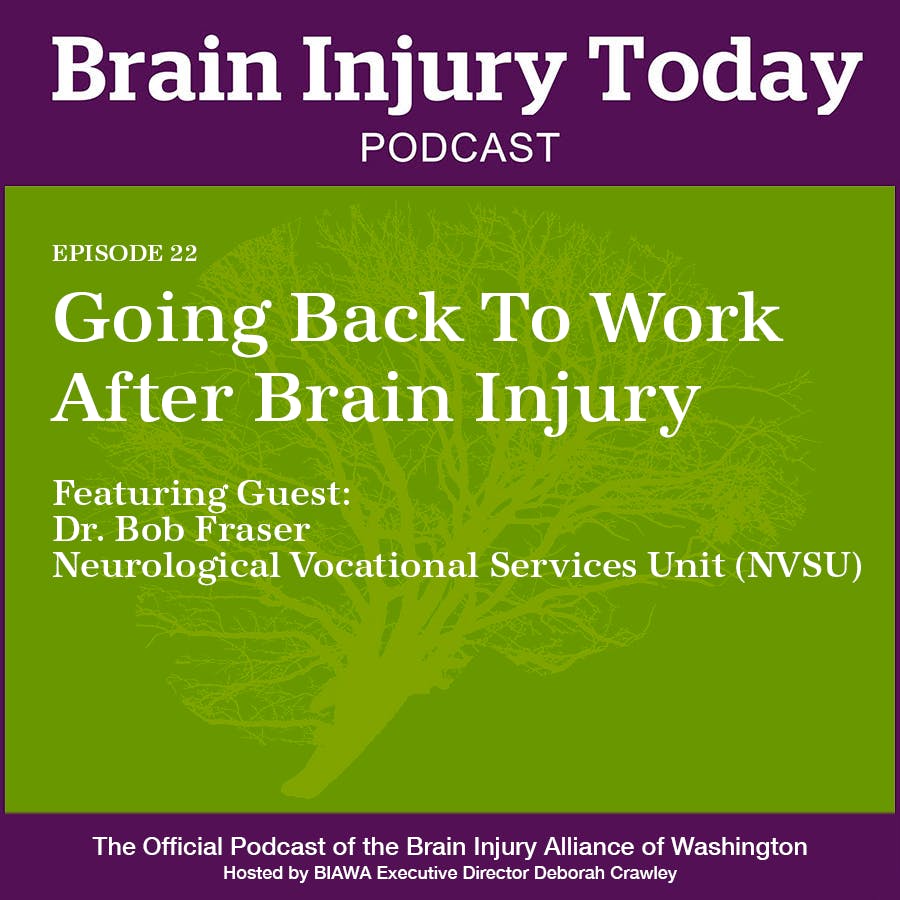
Work is one of the biggest challenges for brain injury survivors. It’s common for survivors to lose or leave jobs after a brain injury. And even those who maintain employment will likely need accommodations. In this episode Deborah speaks with Dr. Bob Fraser, a psychologist who runs the Neurological Vocational Services Unit (NVSU), a nonprofit that helps people with brain injuries and other neurological conditions find and maintain employment. Dr. Bob, as we like to call him, talks about the different challenges brain injury survivors face with work and the various resources available to help.
Dr. Brian Johnston: Preventing Brain Injury In Children
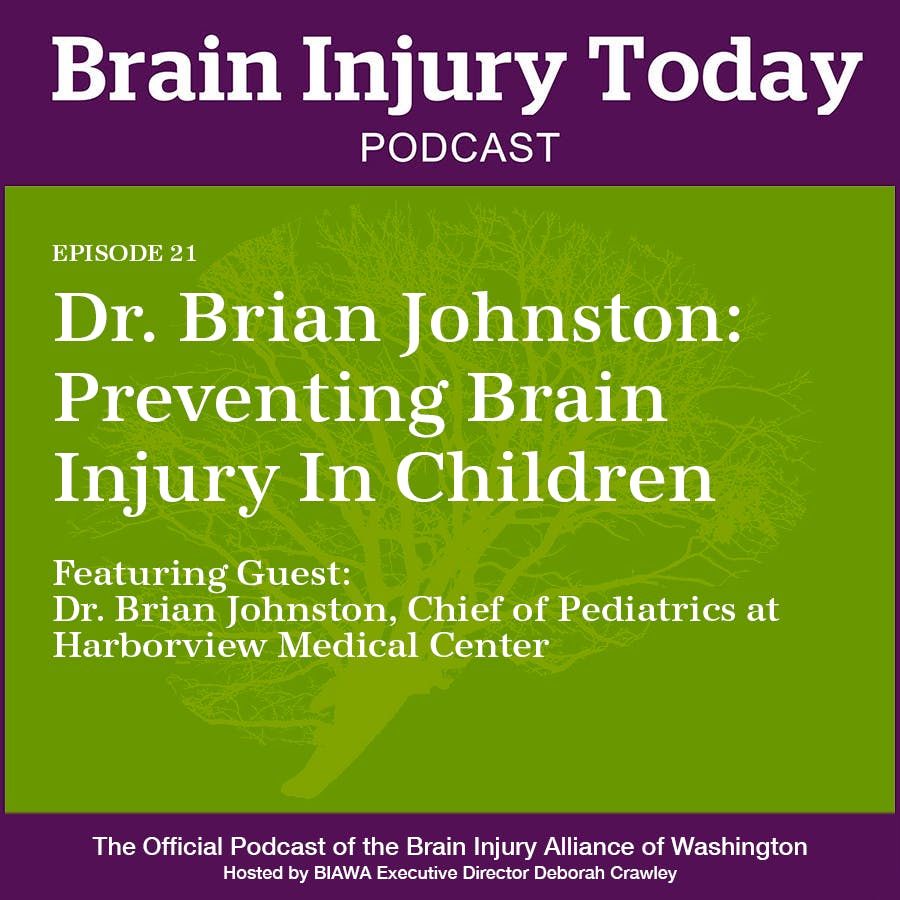
As Chief of Pediatrics at Harborview Medical Center, Dr. Brian Johnston sees brain injuries in young children from all over the state and region. So there’s really no one better to talk to about how to prevent brain injury in our youngest kids! In this episode Deborah and Brian talk about how changes to the products we use and our built environment can make a huge difference in reducing common causes of brain injury in kids, such as falls, what parents can do to keep kids safe, and how his department has changed their approach to injury prevention over the years.
Tracing Sports Safety Policy In Washington
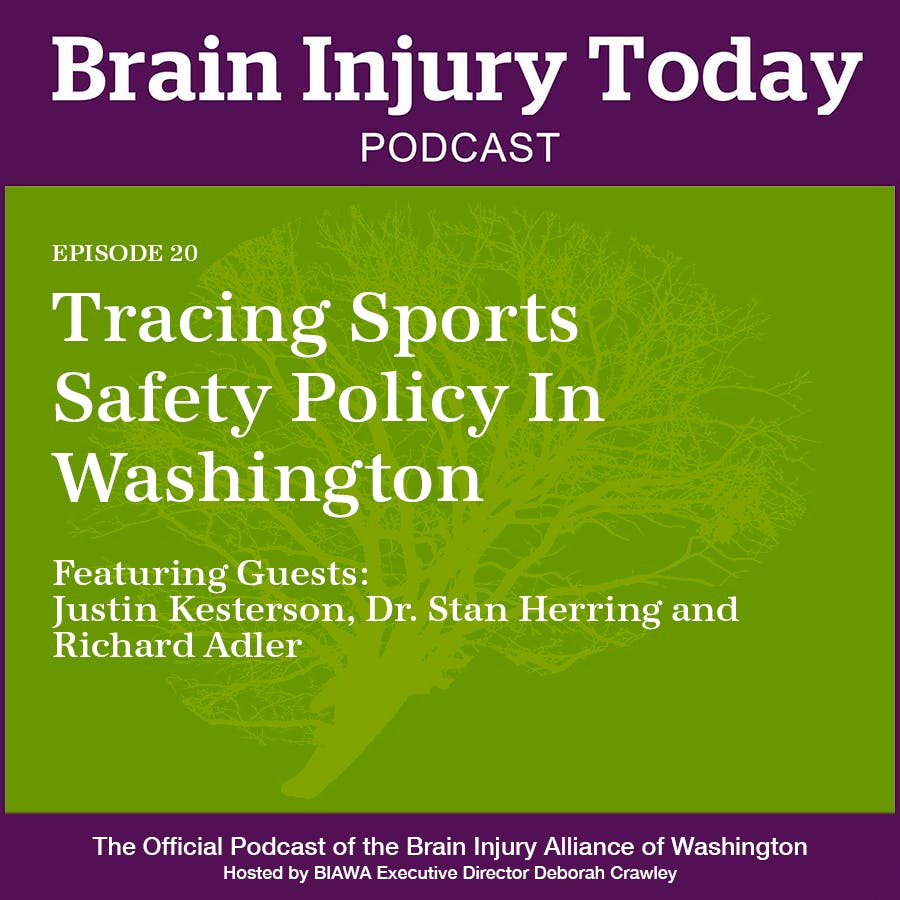
The Brain Injury Alliance of Washington has been involved in improving sports safety policy for kids for over a decade. In this episode, Deborah speaks with three key players who have helped BIAWA improve sports policy in the state and across the nation: the University of Washington’s Dr. Stan Herring, the Washington Interscholastic Activities Association’s Justin Kesterson, and Richard Adler, a renowned personal injury attorney with the firm Adler Giersch. The four discuss the passage of the Lystedt Law in 2009, which was eventually adopted across the country, the Kenney Bui rule, which passed in 2020, what each policy entails and the heroic families that honored their loved ones by lending their names and sharing their stories to advocate and pass better sports safety policy in Washington and beyond.
Sims & Stacy: Caring For A Young Brain Injury Survivor
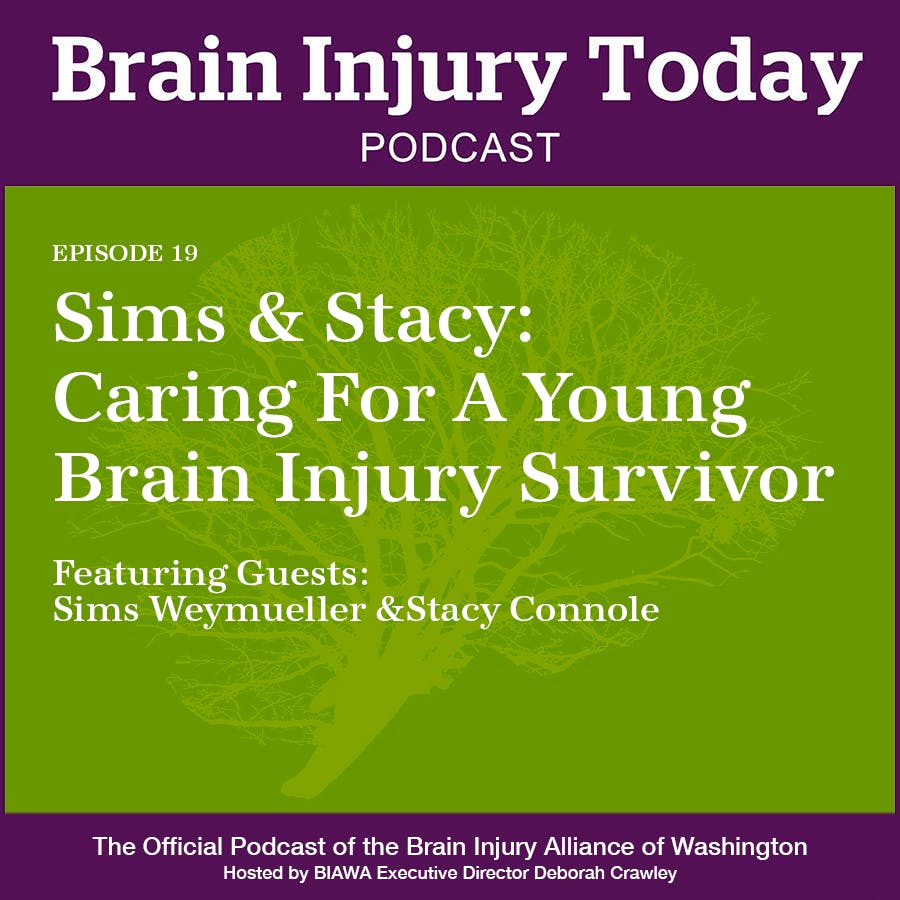
Sims Weymuller and Stacy Connole’s son was just four years old when he sustained a traumatic brain injury that upended their lives. In this episode of Brain Injury Today, Sims and Stacy share their story so that other families can learn from it and know that they are not alone. Sims and Stacy spoke with BIAWA Executive Director Deborah Crawley about navigating the school system as their son entered kindergarten and helping his older brother cope with the trauma. They want other families to know that recovery is possible with enough time and support, and that the Brain Injury Alliance offers services to support families with fewer resources.

